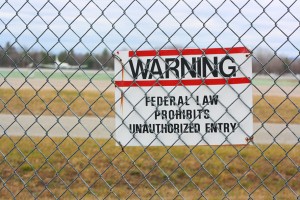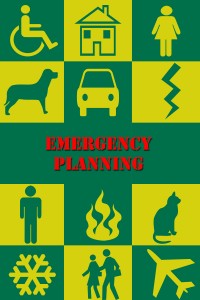 On 9/11/2001 how many airlines switched to contingency plan “grounded”? Airlines deal with contingencies every day. Weather and other factors lead to delays or cancellations of flights on an unpredictable but expected basis. Usually these factors impact flights over a limited portion of the country. A notable exception was the nationwide grounding of flights on 9-11. It seems somewhat obvious to an outsider that a cancellation of all flights for a period of days could have dramatic consequences for businesses associated with air flight and should be a subject of contingency planning. But what incentive does a business have to plan for an unlikely yet catastrophic scenario?
On 9/11/2001 how many airlines switched to contingency plan “grounded”? Airlines deal with contingencies every day. Weather and other factors lead to delays or cancellations of flights on an unpredictable but expected basis. Usually these factors impact flights over a limited portion of the country. A notable exception was the nationwide grounding of flights on 9-11. It seems somewhat obvious to an outsider that a cancellation of all flights for a period of days could have dramatic consequences for businesses associated with air flight and should be a subject of contingency planning. But what incentive does a business have to plan for an unlikely yet catastrophic scenario?
 It all depends on the goals of the business and the individuals running it. Before you can make a plan, you need to understand your long-term goals. A business in the sunset phase of its existence likely will not rebuild. A growing business likely would find a way forward even if needing to change course a bit. Being clear about your goals and your present business situation will make it easier to make appropriate decisions in a disaster.
It all depends on the goals of the business and the individuals running it. Before you can make a plan, you need to understand your long-term goals. A business in the sunset phase of its existence likely will not rebuild. A growing business likely would find a way forward even if needing to change course a bit. Being clear about your goals and your present business situation will make it easier to make appropriate decisions in a disaster.
What is the worst case scenario in your business? A fire burns down the facility? Death of a principal partner? No one wants to (or can) buy your product for a few days to weeks? Do you have a contingency plan for these significant events?
At the recent New England Extension In-Service, Bob Milligan, business coach and consultant, described the grief cycle that is normally triggered when individuals or businesses experience a crisis or disaster. Change experienced as a loss, such as a fire or two unprofitable years due to circumstances outside of one’s control, will trigger the grief cycle. The early phase is usually marked by reactions that can be characterized as shock or denial. Then, and not necessarily in order, grief will be expressed as anger/frustration/shame, depression/detachment, dialogue/bargaining/search for meaning, and finally acceptance and ability to move on. It is important to understand that these are normal reactions to loss and that the emotions accompanying grief may impair one’s decision-making ability. This fact underscores the importance of contingency planning during “normal” times so that options can be compared with previously thought out plans of action.
This need for contingency planning is one of the key drivers of the Vermont “Prepare to Survive a Bio-Disaster” workshops and subsequent projects engaging farmers, agricultural stakeholders and community members in thinking about how to respond to a highly contagious animal disease emergency. Above all else, the most important outcome of these efforts is to get people thinking about what they would do and would want others to do if faced with such a catastrophe.


Contingency planning for yourself and your family for an emergency situation is important. The World as we know it is changing. The Kalifate that is gripping the middle east to the Great Recession Ripping through the rest of the world. Prepare!
Thank you for this intresting article. :-)eg Cinotti
Great point. A death in the family or an illness can cause tremendous disruption in a business especially solo businesses. I’ve had two experiences recently of service providers I depended on, dropping out of sight for a period of time. One was because of an emergency surgery, the other unknown, but both created havoc. After these two experiences, I now ask about contingency plans before I hire small firms. Contingency plans are essential.